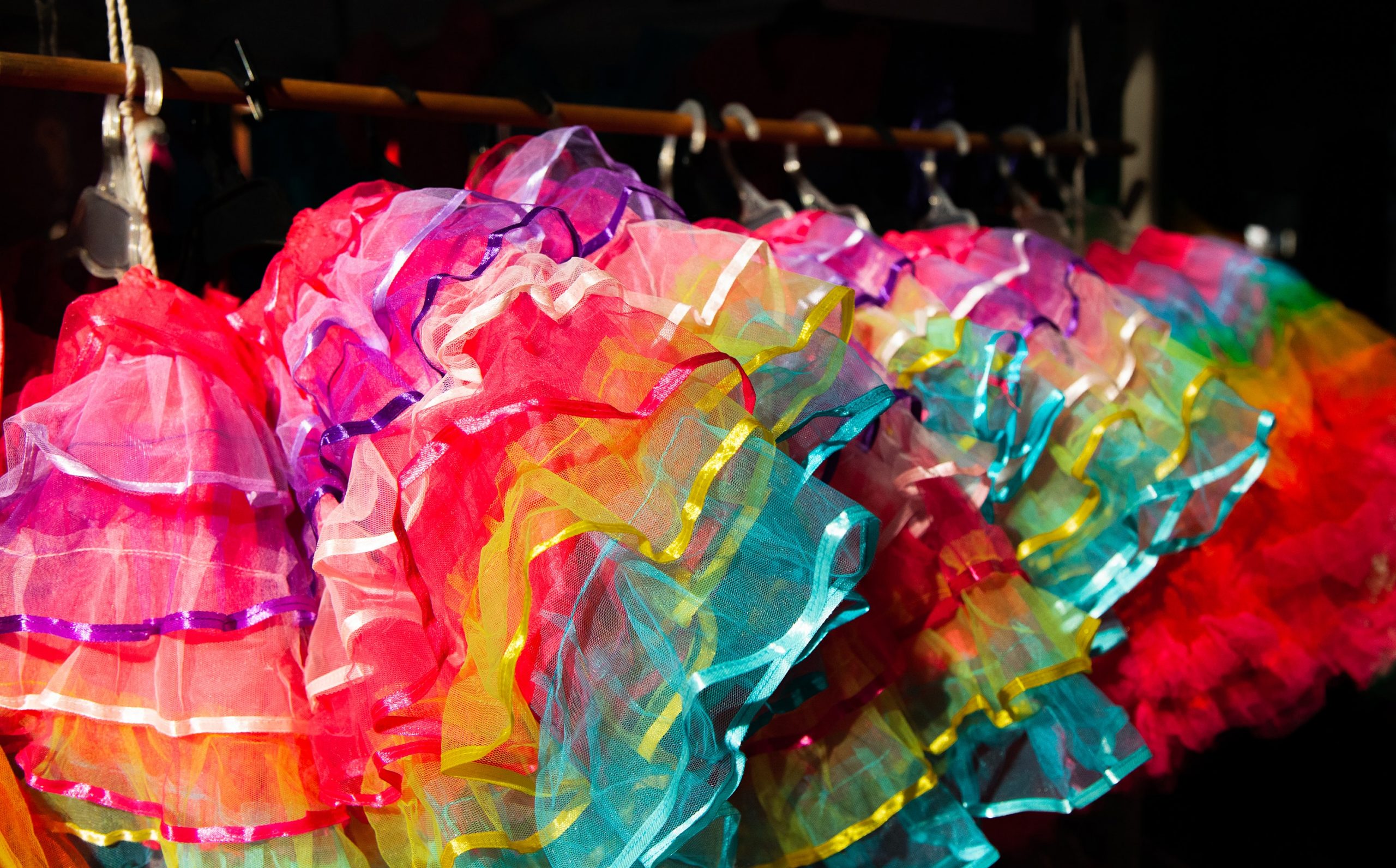When I first looked into Intellectual Property Law shortly after taking the LSAT, I thought that I was automatically ineligible without a science background. But, I was happy to learn that my initial assumption was wrong. It turns out you don’t have to have a science or STEM background to work in Intellectual Property. Those things are only required for those interested in the patent bar, which is only required to practice on behalf of inventors before the USPTO. In reality, IP is more than just patents, and a diverse background might be more helpful than you think.
Costume Design and a career change
Once upon a time I had no idea that I wanted to go to law school. My undergraduate degree is in Costume and Scenic design, and my classes, while difficult and fascinating in their own right, were not exactly a traditional pre-law track. That being said, I will never regret taking History of Witchcraft or Scenic Painting. My trompe-l’oeil work is fantastic.
After graduation I was one of a few of my classmates able to use my degree, and I continued to work in theater for several years. But working in theater wasn’t everything I dreamed it would be. Sure, I worked on some amazing shows, and I worked with some fantastic people. But, I also once stayed up for 34 hours making tutus for a children’s production of Peter Pan only to see four fairies get caught running past the fly-rail and rip my hard work, quite literally, to shreds.
Needless to say, while I have a wealth of unique experiences – I was not sure that they were exactly the type of experiences that translate well to a law school application, or really to the legal field. Still, I wanted a change of scenery, pun intended, and applied for law clerk positions in my hometown to see if law was for me.
After three years and a huge learning curve, I was hooked on becoming a lawyer. But I wasn’t sure what kind of law I wanted to practice. And I missed flexing my creative side. So, I set off to find a way to merge my background with my growing interest in law and fell into the world of Intellectual Property.
I didn’t know much at the time, and I am still learning, but from my theater background I did know that copyrights and trademarks were a form of protection for creative endeavors. A way to ensure that things produced, designed, posted and created cannot be reproduced without the original creator’s athority signing off. Eager to learn more, I went down internet rabbit holes of Disney infringement cases. As I explored, I also recalled my classmates production of A Very Potter Musical. I was happy to learn that parody can potentially constitute “fair use” without violating copyrights!
As I began applying to schools, I searched for those that offered an IP program and also encouraged exploration beyond a specific certification so I could continue to expand my knowledge. Loyola offered that and more.
Loyola: Intellectual Property and Involved Learning
Loyola doesn’t have an IP certificate as is offered by other schools, but I’ve come to find that is a positive. The intentionally certificate-free program means that you can choose with less pressure what you are interested in, and that’s amazing because there are so many opportunities.
I applied for and was accepted to the IP specific legal writing class. This meant that from my first week of school I was exposed to copyright, trademark and patent issues, and learned to properly research and write about them. While many schools have IP electives, they often aren’t available until your second semester of 1L, or even your first semester of 2L. And it was very important to me to be able to jump in right away, my rational was that the sooner you start something the earlier you can discover if it’s not for you. Luckily for me, I had the opposite experience. Every session of my IP legal writing class just fueled my interest and solidified the reason I chose Loyola.
While I haven’t been able to fully combine my costume and scenic design background with IP and law school yet, I know that I am on the right path and I’m excited to see what comes next.
Summers coming and I’m prepared
In addition to learning opportunities throughout the school year Loyola does a fantastic job in preparing its students for summer employment. One of the hardest things about getting a degree isn’t necessarily learning but instead getting the experience you need to succeed.
Not only does Loyola have an exceptional network of graduates and professors who go above and beyond for their students, it also has career services staff that are actually interested in starting your career. Between resume editing, mock interviews and network events – including IP specific networking organized by Professor Ho – there are tons of opportunities to prepare for what the summer will bring.
Lily Parker
Assistant Blogger
Loyola University Chicago School of Law, J.D. 2022
